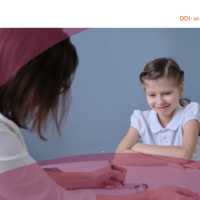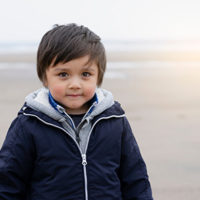speech
-

Social, Emotional and Behavioural Difficulties Associated with Persistent Speech Disorder in Children
In this Papers Podcast, Dr. Yvonne Wren and Dr. Emma Pagnamenta discuss their co-authored JCPP Advances paper ‘Social, emotional and behavioural difficulties associated with persistent speech disorder in children: a prospective population study’.
Read more -

Social, emotional and behavioural difficulties associated with persistent speech disorder in children: A prospective population study
Open Access paper from JCPP Advances – ‘The aim of the current study was therefore to address the current gap in the evidence to investigate the social, emotional and behavioural outcomes of children with persistent speech disorder in older childhood using data from a large prospective, population-based sample’. Yvonne Wren (pic) et al.
Read more -

Do autistic girls talk differently about social groups?
New data, published in the Journal of Child Psychology and Psychiatry, suggest that pronoun use during natural conversation might inform us about clinically meaningful social function.
Read more -

How well children read is largely down to their genes
Children who are avid readers are typically good readers, and children who seldom read a book voluntarily often have dyslexia. Is their reading ability the consequence of how much they practised?
Read more -

Early speech sound disorder alone confers a low risk on reading difficulties
Early speech sound disorder (SSD) combined with other risk factors, such as language impairment (LI) and dyslexia, can have negative consequences on literacy development, according to new research from Marianna Hayiou-Thomas and colleagues.
Read more -

Children with a language disorder are vulnerable to sexual abuse
Preliminary data suggest that children with language disorder may be at an increased risk of child sexual abuse (CSA),1,2 but few have studied the CSA experiences, disclosure patterns or reactions to disclosure in these children.
Read more